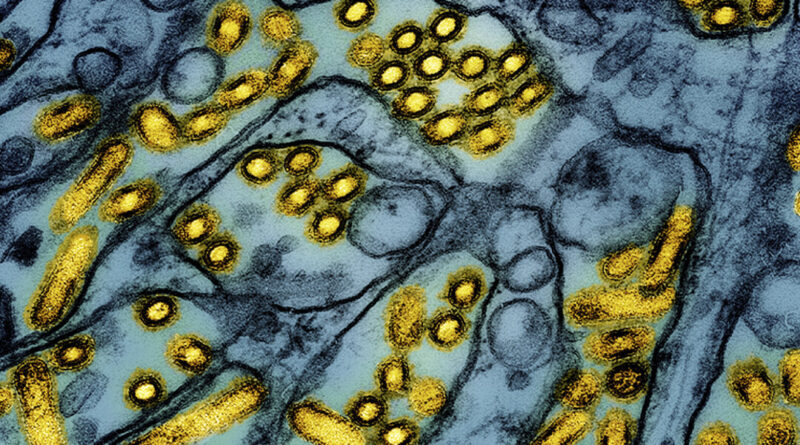CDC Confirms Possible Bird Flu Mutation: 5 Key Facts You Should Know
A number of researchers have reacted to the findings released by the CDC.
Federal health officials announced this week that a genetic analysis indicates the bird flu virus underwent mutations within a Louisiana patient who experienced the first severe case of the illness in the U.S.
The CDC reported that alterations found in the patient were absent in the virus samples from the birds, indicating that these mutations likely emerged during the person’s infection.
“The changes observed were likely generated by replication of this virus in the patient with advanced disease rather than primarily transmitted at the time of infection,” the CDC’s report stated.
Insights from Researchers
Michael Osterholm, an infectious disease researcher from the University of Minnesota, compared this binding interaction to a key fitting into a lock. For the virus to infiltrate a cell, it requires a key that fits the lock—this finding suggests the virus might be adapting to have a more effective key.
“Does this mean we are closer to seeing a virus that can spread easily among people? No,” Osterholm emphasized. “Currently, this is a key that can fit in the lock, but it doesn’t unlock it.”
Angela Rasmussen, a virologist specializing in infectious diseases, remarked that “an increase in [genetic] sequences from humans is a trend we need to reverse” and stressed the importance of reducing the number of human infections from bird flu.
She stated that while the Louisiana “patient contracted the virus from birds, the absence of these sequences in the bird viruses suggests they likely arose in the human host,” a viewpoint she described as “favorable news.”
“This lowers the risk of person-to-person transmission and implies that ‘human-adapted’ viruses are not emerging in avian populations,” Rasmussen commented.
However, she warned about the “significant increase in human cases” and reiterated the uncertainty regarding what combination of mutations might lead to a pandemic H5N1 virus, stressing that increased human infections elevate the potential for a pandemic virus to arise.
“We may be ignoring how prevalent this issue is… particularly from the animal-to-human transmission perspective,” she cautioned.
Scott Gottlieb, a former U.S. Food and Drug Administration (FDA) commissioner and Pfizer board member, posted on X that while many believe it is unlikely H5N1 will become a pandemic, the U.S. would be accountable if it did in a low-probability scenario.
The Risk of Outbreak Remains Low
According to the CDC’s report, the Louisiana patient came into contact with sick and deceased birds in backyard flocks, and the risk of an outbreak in the U.S. is still low. In 2024, there have been 65 confirmed human cases of H5N1 avian influenza in the United States, while the CDC has verified that 891 dairy herds have been affected by the virus.
“The detection of a severe human case with genetic changes in a clinical specimen highlights the necessity for continuous genomic surveillance in humans and animals, containment of avian influenza outbreaks in poultry and dairy cattle, and preventive measures for individuals exposed to infected animals or environments,” the agency stated.
The virus has been causing occasional, mostly mild illnesses among individuals in the U.S., predominantly affecting those working on dairy or poultry farms. The CDC revealed earlier this month that the Louisiana patient, who developed a severe form of the disease, was over 65 years old and had pre-existing health conditions.
Furthermore, the CDC has emphasized that there has been no confirmed transmission of the virus from the Louisiana patient to anyone else.
In November, officials in Canada reported a teenager in British Columbia was hospitalized due to a severe case of avian flu.
CDC Guidelines
The CDC’s website advises individuals to “maintain a safe distance from wild birds whenever possible” and to “avoid interactions with wild or domestic birds that seem sick or have died; report any sick or dead birds immediately.”
Additionally, people are warned against consuming raw or unpasteurized milk and products derived from raw milk, according to CDC guidelines.
The agency also encourages individuals to “avoid direct contact or close exposure to cattle and potentially infected materials.”
Bird Flu Can Affect Cats
The death of a house cat in Oregon and a subsequent pet food recall have sparked concerns regarding the ongoing outbreak.
Oregon health authorities traced the cat’s illness back to frozen cat food that contained raw turkey, determining that the virus found in the recalled pet food was identical to that from the infected cat. Concurrently, the Los Angeles County Department of Public Health is looking into the deaths of four house cats that ingested recalled raw milk.
Naturals, a Portland-based pet food company, announced a voluntary recall of a specific batch of its 2-pound Feline Turkey Recipe raw frozen pet food after testing positive for the virus.
State of Emergency Declared in California
Earlier in December, California Governor Gavin Newsom issued a state of emergency regarding bird flu, indicating that this was a precautionary measure.
His office noted that bird flu cases have been identified in dairy cows in Southern California and that intensified monitoring is essential “to contain and mitigate the spread of the virus.”
“This proclamation is a focused response to guarantee that government agencies have the necessary resources and flexibility to act swiftly to this outbreak,” the governor stated in a Dec. 18 announcement about the emergency declaration.
The Associated Press contributed to this report.




